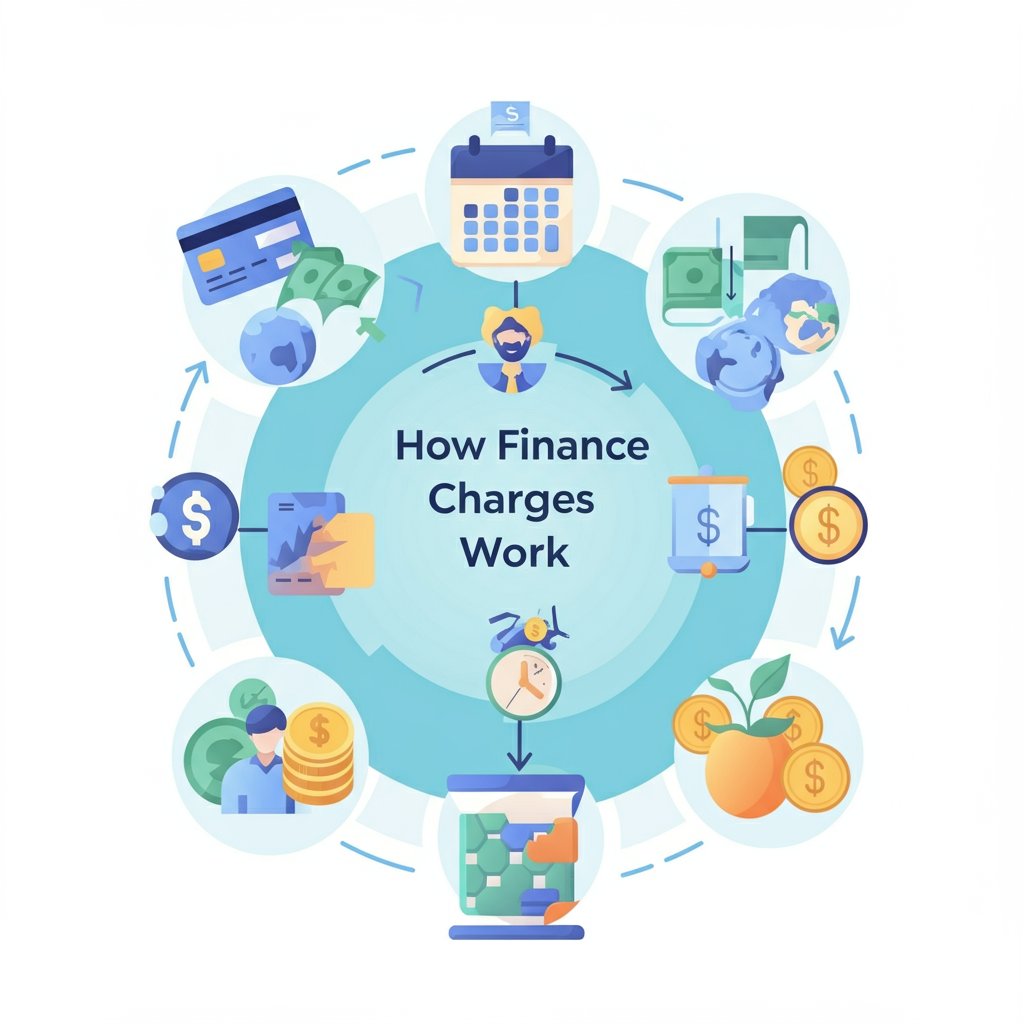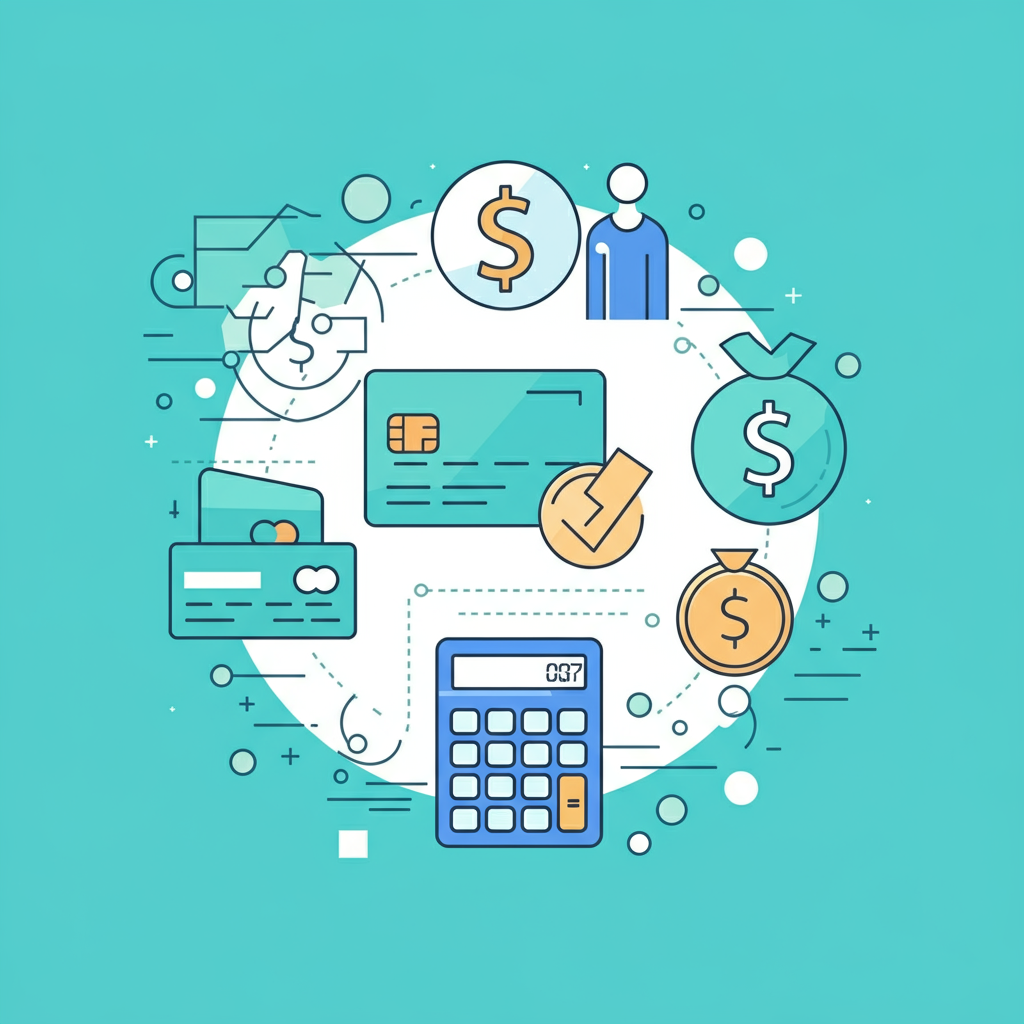Managing your finances can feel like a game of strategy, especially when those sneaky little “finance charges” show up on your bills or credit card statement. They might seem small at first, but over time, they can drain your wallet if left unchecked. Understanding finance charges and learning how to manage or avoid them is a key step toward strengthening your financial health.
In this guide, we’ll uncover everything you need to know about finance charges, from what they are to practical tips for avoiding them. By the end, you’ll know how to take control of those hidden fees and keep more of your hard-earned cash in your pocket.
What Are Finance Charges?
Finance charges are the costs associated with borrowing money or using credit. They encompass a variety of fees and interest that lenders charge in exchange for providing you with credit. Essentially, it’s how financial institutions make their profits.
These charges apply to credit cards, loans, mortgages, and other forms of borrowing. They can include interest rates, service fees, and late payment penalties, which we’ll explore in greater detail below.
Key takeaway: If you’re borrowing money, you’re likely paying a finance charge, so understanding how they work is crucial.
Types of Finance Charges
Finance charges come in many forms. Here’s a closer look at the most common ones you’re likely to encounter:
1. Interest Rates
The most well-known finance charge, interest is the cost of borrowing money, typically expressed as an annual percentage rate (APR). It applies to loans, mortgages, and credit cards.
For example:
- If you have a credit card balance of $1,000 with a 20% APR, you’ll accrue $200 in interest over the course of a year if you don’t pay off the balance.
2. Service Fees
Service fees are charges for account maintenance or specific services. These could include annual fees for credit cards or administrative costs associated with certain loans.
3. Late Payment Fees
Miss a due date on a credit card or loan payment? That can trigger a late payment fee. These fees can be significant, usually ranging from $25 to $40, depending on the lender.
4. Cash Advance Fees
If you use your credit card to withdraw cash at an ATM, you’ll likely incur a cash advance fee. This is typically a percentage of the amount withdrawn, along with a higher interest rate compared to regular credit card purchases.
5. Balance Transfer Fees
When transferring a balance from one credit card to another, you might be hit with a transfer fee. This charge is usually a percentage of the transfer amount (e.g., 2-5%).
How Finance Charges Work

Finance charges are calculated differently depending on the type of credit or loan. Understanding these methods can help you anticipate what you might owe.
1. APR vs. Interest Rate
While both terms mention interest, they are not the same.
- APR (Annual Percentage Rate): Includes the interest rate plus fees and other costs associated with borrowing.
- Interest Rate: Refers only to the percentage charged on the principal loan amount.
Example:
For a $1,000 loan:
- If the interest rate is 5%, the cost of borrowing is $50 annually.
- If additional fees total $20, the APR would be 7% ($70 in total annual costs).
2. Calculation of Interest
There are various ways interest is calculated:
- Fixed Interest: The rate remains constant throughout the loan term.
- Variable Interest: The rate fluctuates based on market conditions.
- Daily Balance Method: Interest accrues based on the balance owed each day.
Lenders typically disclose these terms upfront, so it’s essential to read the fine print.
Common Examples of Finance Charges
Nearly all forms of credit or borrowing involve finance charges. Here are some examples:
- Credit Cards: Interest on unpaid balances, annual fees, and late payment charges.
- Personal Loans: Origination fees, interest rates, and payment penalties.
- Mortgages: Closing costs, interest rates, and private mortgage insurance (PMI) fees.
Each type of borrowing comes with its unique combination of finance charges, so it’s vital to know what you’re agreeing to.
The Impact of Finance Charges on Your Finances
Finance charges, if not managed well, can have a snowball effect on your finances, leading to:
- Debt Accumulation: High interest and fees can make repaying debt much harder over time.
- Stress on Monthly Budgets: Unanticipated fees can throw off your financial plans.
- Reduced Savings Potential: The more you pay in finance charges, the less you have to save or invest.
The bottom line? Avoiding unnecessary finance charges is a crucial part of healthy money management.
Strategies to Avoid Finance Charges
Avoiding or minimizing finance charges involves being proactive. Here’s how to do it:
1. Pay Bills on Time
The easiest way to dodge late payment fees and extra interest is by paying your bills before they’re due.
2. Pay Off Balances in Full
For credit cards, aim to pay your balance in full each month. Carrying a balance incurs interest charges that can quickly add up.
3. Avoid Cash Advances
Cash advances often carry steep fees and higher interest rates. Consider them a last resort.
4. Negotiate Rates
Reach out to your lender or credit card issuer to request a lower interest rate. Many companies are willing to reduce rates for loyal or responsible customers.
5. Use 0% APR Promotions
Take advantage of 0% APR promotions on credit cards for balance transfers or new purchases—but ensure you clear the balance before the promotional period ends.
Comparing Paying vs. Avoiding Finance Charges
Here’s a simple table showing the cost difference between paying finance charges and avoiding them:
| Scenario | Finance Charge Paid | Finance Charge Avoided |
|---|---|---|
| Carrying a $1,000 credit card balance for 12 months at 20% APR | $200 | $0 |
| Paying a credit card two days late each month | $25 late fee per month | $0 |
| Using a card’s cash advance feature for $500 | $50 + interest | $0 |
By avoiding these fees, you can save hundreds each year.
Real-Life Scenarios
Meet Sarah. Sarah realized she was spending $400 annually on bank fees and credit card interest. After setting up automatic bill payments and transferring her balance to a 0% APR card, she eliminated those fees entirely and used the savings to build an emergency fund.
People Also Ask (PAA)
1. What triggers a finance charge?
Finance charges are typically triggered when you carry a credit card balance, make a late payment, take a cash advance, or fail to meet loan terms.
2. Are all finance charges avoidable?
Some, like interest on loans, are unavoidable unless you pay off the debt. However, most charges (like late fees or overdraft fees) can be avoided with proactive financial management.
3. How can I check for finance charges on my account?
Review your monthly statements carefully for any listed charges. Pay close attention to the APR and any additional fees noted.
Expert Tips for Managing Finance Charges
Here’s some advice from financial advisors:
- Set up alerts or autopay to avoid missed payments.
- Regularly compare lenders and refinance loans to secure better rates.
- Use budgeting tools like Mint or YNAB to track spending and manage due dates.
Tools and Resources
- Budgeting Apps: Mint, YNAB, PocketGuard.
- Credit Counseling Services: National Foundation for Credit Counseling (NFCC).
- Loan Calculators: Use online tools to estimate monthly payments and interest.
Take Control of Your Financial Health
Finance charges might seem unavoidable, but with smart strategies and financial diligence, you can minimize their impact. Start by understanding your statements, paying bills on time, and using the right tools to track your spending. The more proactive you are, the more money you’ll save and invest in your future.
